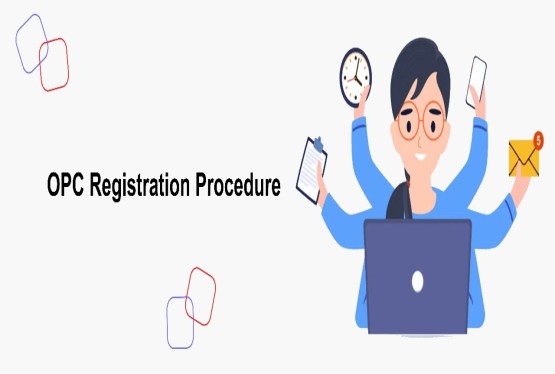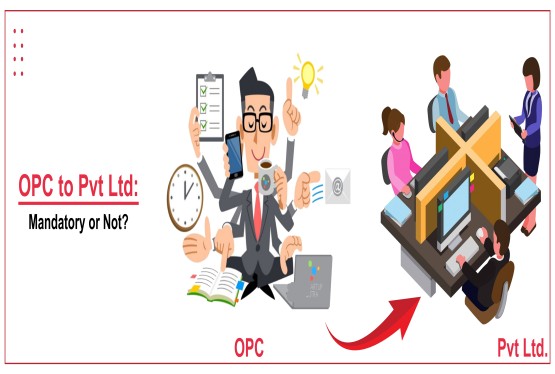The Food Safety and Standards Authority of India (FSSAI) is an important regulatory body established under the Food Safety and Standards (FSS) Act, 2006, to ensure the safety and quality of food products in India. FSSAI Registration, often referred to as a food license, is mandatory for all food business operators (FBOs) engaged in the manufacture, distribution, storage, or sale of food in India. This article provides a detailed guide on FSSAI Registration in India, covering its types, procedures, documents required.
What is FSSAI?
The full form of FSSAI is Food Safety and Standards Authority of India, it operates as an autonomous body under the Ministry of Health & Family Welfare, Government of India. Established in 2006 under the Food Safety and Standards Act (FSSA), it serves as a central regulatory authority responsible for ensuring food safety and harmonizing regulations in the country.
The FSSAI oversees the formulation and enforcement of food safety standards and inspects food premises to ensure compliance. It also regulates storage, manufacturing, and handling practices to guarantee safe food for consumers. By consolidating multiple regulations, the Act provides a cohesive framework for protecting public health and ensuring food safety compliance.
Consolidation of Previous Laws
The FSSA integrates and replaces the following seven earlier legislations:
1. Vegetable Oil Products (Control) Order, 1947
2. Prevention of Food Adulteration Act, 1954
3. Fruit Products Order, 1955
4. Solvent Extracted Oil, De-Oiled Meal, and Edible Flour (Control) Order, 1967
5. Meat Food Products Order, 1973
6. Edible Oils Packaging (Regulation) Order, 1988
7. Milk and Milk Products Order, 1992
This consolidation simplifies the regulatory landscape and ensures uniform standards for all food business operators in India. The FSSAI's framework is designed to enhance consumer safety, promote fair practices in the food industry, and facilitate trade by adhering to both national and international food safety standards.
Role of FSSAI in India
The FSSAI, established under the Food Safety and Standards Act, 2006, is the key regulatory body ensuring food safety and quality in India. It works to protect public health by setting and enforcing food safety standards.
FSSAI formulates and updates food safety regulations based on scientific research, ensuring compliance with global benchmarks. It also oversees licensing and registration of food businesses, making them accountable for adhering to these standards.
The authority monitors food quality through its network of accredited laboratories, conducting regular inspections and testing to detect contamination or adulteration. It also plays a critical role in regulating food packaging and labeling to ensure transparency and consumer awareness.
Consumer education is a priority for FSSAI. Through campaigns like ‘Eat Right India’, it promotes healthy eating habits and empowers consumers to verify food safety information and report unsafe food practices.
FSSAI regulates imported food products, ensuring they meet Indian safety standards. It works closely with customs to scrutinize imports and prevent non-compliant goods from entering the market.
The authority also ensures food safety in emerging areas like e-commerce food delivery and cloud kitchens, collaborating with state authorities for effective implementation of norms. Additionally, it aligns with international organizations like Codex Alimentarius to enhance global trade and competitiveness.
Through legal action, penalties, and consumer outreach, FSSAI fosters a culture of accountability and trust in India’s food industry. Its initiatives, including food fortification, address nutritional deficiencies and promote innovation in the food sector.
Importance of FSSAI Registration in India
FSSAI registration is not just a legal requirement but also a mark of trust that assures consumers about the safety and quality of the food they consume. Here are some key reasons why FSSAI registration is important:
1. Legal Compliance: Ensures that food businesses adhere to the safety standards prescribed under the FSS Act.
2. Consumer Trust: Builds confidence among consumers regarding the quality and hygiene of food products.
3. Market Access: Necessary for businesses to operate legally in the food industry, including exports and imports.
4. Quality Assurance: Encourages businesses to maintain high-quality standards, thereby reducing health risks.
Some Changes by FSSAI to Enhance Food Safety Standards in Recent Years
The Food Safety and Standards Authority of India (FSSAI) has recently implemented several significant regulations to ensure food safety, quality, and public health. These changes target harmful practices and materials in food production, packaging, and sale. Here's a summary of the key updates:
1. Ban on Plastic and Newspaper in Food Packaging
FSSAI has prohibited the use of reused plastic and newspapers for packaging edible items. This ban aims to address health risks and reduce environmental degradation caused by chronic plastic usage. It applies to large food industries and small vendors lacking FSSAI registration.
2. Ban on Stapler Pins in Tea Bags
Effective January 1, 2018, tea producers were banned from using metallic stapler pins in tea bags. Loose pins pose choking risks and potential cancer-causing effects if ingested. The directive mandates the discontinuation of manufacturing, storage, sale, and import of stapled tea bags.
3. Ban on Carbide for Artificial Ripening
FSSAI has banned harmful chemicals like calcium carbide and acetylene gas for artificially ripening fruits. These substances posed serious health hazards. Ethylene gas, a safer alternative, is now allowed for ripening fruits.
4. Ban on Non-Veg Silver Leaf in Indian Desserts
The use of silver leaf (varq) in Indian desserts like barfis and kaju katli has been prohibited. Concerns included the use of animal hide during production and contamination with hazardous metals like nickel, lead, and chromium.
5. Ban on Toluene Printing in Food Packages
FSSAI has banned the use of toluene, a solvent used in printing, on food packaging. Toluene can seep into food despite multiple protective layers, causing liver and kidney damage.
6. Ban on Unregistered Food Business Operators (FBOs) on E-commerce Platforms
In August 2018, FSSAI prohibited unregistered FBOs from listing products on e-commerce platforms like Zomato and Swiggy. This ensures consumers receive food from licensed and hygienic sources, preventing potential health risks.
7. Ban on Health Supplements as Medicines
Health supplements can no longer be marketed or prescribed as medicines. Labels must carry the disclaimer “NOT FOR MEDICINAL USE” to prevent misuse and overconsumption, which may cause long-term health risks.
Functions of FSSAI
The FSSAI performs several critical roles to maintain food safety standards, including:
-Regulating Food Processes: Monitoring food processing, production, distribution, import, and sale to ensure safe and wholesome food.
-Setting Standards: Specifying permissible limits for contaminants, additives, pesticides, heavy metals, and irradiation in food products.
-Accreditation: Establishing mechanisms to accredit food safety management systems and laboratories.
-Quality Control: Enforcing quality checks for imported food items and creating risk assessment guidelines.
-Scientific Support: Providing advice to Central and state governments on food safety policies and conducting technical research.
-Consumer Awareness: Educating the public about food safety standards and promoting informed choices.
Types of FSSAI Registration in India
FSSAI registration in India is categorized into three types based on the annual turnover and production capacity of the food business:
1. FSSAI Basic Registration
-Applicability: For small food businesses with an annual turnover below Rs.12 lakh.
-Form Required: Form-A.
-Authority: Designated officer notified by the Food Safety Commissioner grants this registration.
-Applicability: For medium-sized businesses with an annual turnover between Rs.12 lakh and Rs.20 crore.
-Form Required: Form-B.
-Authority: State FSSAI office grants this license.
-Applicability: For large businesses with an annual turnover exceeding Rs.20 crore or involved in import/export of food products.
-Form Required: Form-B.
-Authority: Central FSSAI authority grants this license.
Who Needs an FSSAI License/Registration?
The FSSAI license is mandatory for the following:
-Food retailers and hawkers.
-Dairy and meat processing units.
-Food manufacturers and repackers.
-Restaurants, hotels, caterers, and canteens.
-Cloud kitchens, e-commerce food platforms, and transporters.
-Importers and exporters of food products.
Documents Required for FSSAI Registration
For FSSAI Basic Registration:
-Photo identity proof.
-Address proof of the business.
-Proof of possession of the business premises.
-Food business constitution certificate.
-Details of the nature of business.
-List of food articles manufactured or processed.
For FSSAI License:
-Filled and signed Form-B.
-Address proof of the business.
-Layout plan of the food processing unit.
-Proof of possession of the business premises.
-Food business constitution certificate.
-Equipment and machinery details, including installed capacity.
-List of partners, directors, or executives with contact details.
-ID and address proof of proprietors or authorized signatories.
-Water analysis report from a recognized laboratory.
-List of food items proposed to be manufactured.
-Authority letter nominating a responsible person.
-NOC from the manufacturer.
-Food safety management system plan or certificate.
Procedure for FSSAI Registration in India
The online process to obtain FSSAI registration is basic. Here are the steps:
1. Visit the FoSCoS Portal: Access the official Food Safety Compliance System (FoSCoS) portal.
2. Select Your State: Choose the appropriate state from the dropdown menu.
3. Choose Business Type: Select the relevant category such as ‘Trade/Retail,’ ‘Manufacturer,’ or ‘Food Services.’
4. Determine Eligibility: Select your business’s turnover or production capacity and proceed.
5. Fill the Application Form: Provide necessary details, upload required documents, and pay the applicable fee.
6. Submit the Form: Submit the application. The authorities will review the details and inspect the premises if necessary.
7. Receive License/Registration: Upon successful verification, the FSSAI registration or license will be issued.
FSSAI's Enforcement Mechanisms: Ensuring Food Safety and Accountability in India
The Food Safety and Standards Authority of India (FSSAI) plays a pivotal role in protecting consumers by implementing robust compliance and enforcement mechanisms. These measures ensure that food products adhere to safety and quality standards throughout the supply chain. Below are the key components of FSSAI’s enforcement framework:
Stringent Penalties
The FSSAI Act imposes strict penalties for violations, ranging from substandard food production to misleading advertisements. Depending on the severity of the offense, violators may face fines ranging from ?1 lakh to ?10 lakh or imprisonment for up to six months to a year. These penalties act as a strong deterrent, fostering accountability and responsible practices among food businesses.
Adjudication for Justice
State governments appoint Adjudicating Officers, typically senior officials at the level of Additional District Magistrates, to handle food safety violation cases. These officers, equipped with powers similar to a civil court, ensure impartial investigations and fair trials. They evaluate evidence and impose penalties in line with the provisions of the FSSAI Act, ensuring justice while maintaining transparency.
Accessible Appeal Mechanisms
The FSSAI prioritizes fairness by providing a platform for appeals. Any individual or entity dissatisfied with a decision by an adjudicating officer or the FSSAI can file an appeal within 30 days. State-level Food Safety Appellate Tribunals review these cases, offering the power to confirm, amend, or overturn previous rulings. This mechanism upholds transparency and ensures that all voices are heard.
Conclusion
A key advantage of the FSSAI license process is that if the application processing exceeds 60 days, the applicant is permitted to commence business operations without further delay. The Food Safety and Standards Act, 2006, has introduced significant reforms aimed at enhancing food quality and ensuring hygienic practices.
Compliance with the Act mandates that anyone intending to start a food-related business must secure an FSSAI registration or license. This requirement applies to all activities related to food production, processing, storage, packaging, and distribution. Thus, obtaining an FSSAI license is essential for maintaining legal compliance and ensuring consumer trust in food safety.
FAQs
1. What is FSSAI and its Role?
Ans. The Food Safety and Standards Authority of India (FSSAI), established in 2008 under the Ministry of Health and Family Welfare, is responsible for setting scientific standards for food products. Its role includes regulating the production, storage, distribution, sale, and import of food to ensure the availability of safe and wholesome food for consumers.
2. What is the Purpose of an FSSAI License?
Ans. An FSSAI license ensures compliance with food safety regulations while promoting consumer trust. It enhances the credibility and growth potential of food businesses by demonstrating a commitment to delivering safe and high-quality food products.
3. What are the Key Food Safety Rules?
Ans. 1. Cook raw food thoroughly to ensure all parts are heated to at least 70°C.
2. Consume cooked food immediately to prevent contamination.
3. Avoid cross-contamination between raw and cooked foods.
4. Prepare food in quantities suitable for one meal to reduce waste and spoilage.
5. Boil unpasteurized milk before consumption and wash or peel uncooked fruits and vegetables before eating.
4. Who is the CEO of FSSAI?
Ans. The current Chief Executive Officer (CEO) of FSSAI is Shri Ganji Kamala V. Rao, while Shri Apurva Chandra serves as the Chairperson.
5. Who Oversees FSSAI?
Ans. The FSSAI operates under the Ministry of Health and Family Welfare, Government of India. The Chairperson and CEO of FSSAI are appointed by the central government to oversee its functions.
6. What are the Seven Principles of Food Safety?
Ans. The seven principles of the Hazard Analysis and Critical Control Points (HACCP) system, as outlined by the FDA, include:
1. Conducting a hazard analysis.
2. Identifying critical control points (CCPs).
3. Establishing critical limits for each CCP.
4. Implementing monitoring procedures.
5. Defining corrective actions for deviations.
6. Verifying the effectiveness of the system.
7. Maintaining proper records and documentation.
These principles form the foundation for ensuring food safety across the supply chain.












_crop10_thumb.jpg)





_crop10_thumb.jpg)




























-Form_crop10_thumb.jpg)

_crop10_thumb.jpg)























_learn_crop10_thumb.jpeg)































_crop10_thumb.jpg)

_crop10_thumb.jpg)





















_crop10_thumb.jpg)















_for_Foreign_Directors_learn_crop10_thumb.jpeg)




_Act,_2015_learn_crop10_thumb.jpg)



































_learn_crop10_thumb.jpg)


































